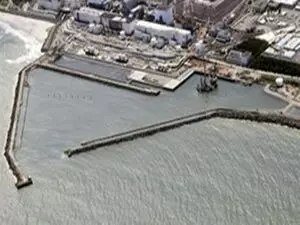
Japan begins 9th ocean discharge of nuclear-tainted wastewater
text_fieldsTokyo: Japan began its ninth round of nuclear-contaminated wastewater releases into the Pacific Ocean on Thursday, despite strong opposition both internally and internationally.
The releases were from the ruined Fukushima Daiichi Nuclear Power Plant. Similar to the previous rounds, until October 14, about 7,800 tonnes of wastewater will be released via an underwater tunnel from a location around one kilometre off the coast of Fukushima Prefecture.
Hit by a 9.0-magnitude earthquake and an ensuing tsunami on March 11, 2011, the Fukushima nuclear plant suffered core meltdowns that released radiation, resulting in a level-7 nuclear accident, the highest on the International Nuclear and Radiological Event Scale.
The plant has been generating a massive amount of water tainted with radioactive substances from cooling down nuclear fuel in reactor buildings. The contaminated water is now being stored in tanks at the nuclear plant.
Despite opposition from local fishermen, residents and the international community, ocean discharge of the Fukushima nuclear-contaminated water began in August 2023.
In fiscal 2024, TEPCO plans to discharge a total of 54,600 tons of contaminated water in seven rounds, which contains approximately 14 trillion becquerels of tritium.
While competent departments of China and Japan have recently reached an agreement on the discharge, China has reaffirmed that it is firmly opposed to Japan's unilateral move to start the discharge and this position remains unchanged, Xinhua news agency reported.
The purpose of reaching the agreement with Japan is to urge Japan to earnestly fulfil its obligations under international law and its responsibility for safety oversight, to do its utmost to avoid leaving a negative impact on the environment and human health and to effectively prevent the potential risk that may arise from the discharge, according to foreign ministry spokesperson Mao Ning.
With inputs from IANS























